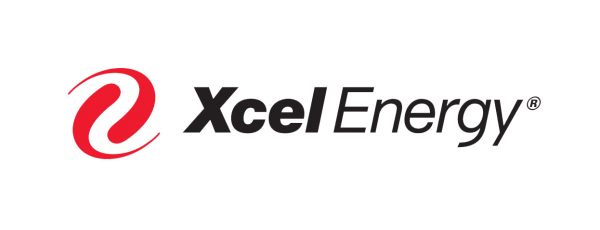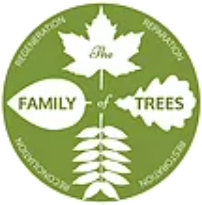Includes Listing of Recycling Drop-Off Centers
Judging by collection rates, Minnesotans love to recycle. Nearly 50% of the garbage we generate is recycled, which places us among the leaders nationally. However, not many of us know much about what happens to all that stuff we collect, and some of us don’t always follow the rules for recycling certain items. Here are some facts on a number of common recyclables:
Aluminum. Recyclers love it and most will pay you for your soda or beer cans. Some pet food cans are also aluminum and can be included with your pop cans. According to the Aluminum Association, closed-loop recycling of aluminum uses 95% less energy than making aluminum from ore. Keep in mind that according to Earth Works Group, every three months the United States throws away enough aluminum to rebuild our commercial air fleet.
Bi-metal (tin) cans. For most people, these are generally soup or other canned foods. An easy way to tell bi-metal cans from aluminum ones is that bi-metal cans are magnetic. Fewer recycling centers accept bi-metal cans because the processing can be expensive and resale value is lower because of the mixed-metal content. The cans are recycled primarily for their steel, not their tin. Recyclers may request that you remove any labels from the cans.
Cardboard. Corrugated cardboard is the type of cardboard in which most materials are shipped. When you look at the flaps, you’ll notice ridges between the inner and outer layers. Presently, corrugated cardboard is a highly desirable recyclable. Most curbside collectors ask you to bale your cardboard together and tie it with string. Check to see if there are size and weight limits to how much you are allowed to bale together or it may not get picked up. The most important thing to remember is to keep it dry. Plastic or waxy coated and wet or greasy cardboard, such as pizza boxes, cannot be recycled.
Glass. Recycling glass saves 25-32% of the energy used to make glass. Recyclers reject entire truckloads of glass if there are rocks, dirt or even one piece of ceramic material in the lot. Glass recycling is a high-temperature process in which contamination ruins the ability of the plant to make a pure glass, so rinse your containers. It’s also a good idea to remove lids and caps, including those rings that come with some caps to prevent tampering. This is especially true with the lead around wine bottles. It’s not necessary to remove labels, however. All food and beverage containers are fine. Some centers may ask that you separate glass according to color: clear, green/blue and brown glass. Window glass is recycled with a different process than container glass, so few recyclers take it because collected quantities are too low to warrant a run. Lightbulbs, dishware, cookware, mirrors, white and black bottles are not recyclable. Broken bottles and jars are also not recyclable because the broken glass is hazardous to the workers who have to handle the materials during separation. To dispose of broken glass, place in a bag labelled ‘sharp objects’ in the trash.
Paper. Depending on the specific type, paper can be a highly desired recyclable or something that is grudgingly collected. Most paper recyclers divide paper into four categories:
- High grade – includes both white and pastel colored office paper, envelopes without plastic windows, computer printouts, lined notebook or composition paper, stationary, computer printouts, index cards and Post-Its
- Mixed grade – includes glossy papers like magazines or catalogs, envelopes with windows, dark or fluorescent-colored papers, Kraft paper (brown) envelopes and sometimes can include tablet backs and manila folders
- Low grade – newspapers and phone books
- Paperboard – boxes for dry foods like cereal or pasta or items such as toilet paper or paper towel rolls. This does not include boxes from frozen foods as these papers are coated and will contaminate the rest of the load.
Plastic. It is important to recycle plastic because it is made from fossil fuel, a non-renewable energy source. There are so many different kinds of plastic available, they are the hardest materials we have to recycle, and they are also the ones that confuse the most people about what is and is not recyclable. It’s really important to check with your recycling service if you have curbside pick-up or your drop-off location to see which plastics are accepted. Generally speaking, containers with a neck, plastic pop bottles, milk and juice jugs and laundry detergent bottles are accepted. Biodegradable and photodegradable plastics are not accepted. Containers such as tubs for butter or other spreads or deli takeout are also usually not accepted, although you can wash and reuse these at home. Like glass bottles, caps and rings should be removed.
Metal (scrap, non-ferrous). There are a variety of scrap metal dealers in the Twin Cities that take items such as old radiators, metal doors, piping, car parts, old lawnmowers or just about any other metal item you can think of. You can find dealers by looking in the Yellow Pages under “Scrap.” Many listings will say what metals they collect, but it’s a good idea to call ahead before making a trip. When recycling things like lawnmowers or anything else with an engine, you need to remove any leftover motor oil or gasoline before bringing it to the dealer.
Motor oil. Nationally, some 350 million gallons of used oil are unnecessarily dumped each year, often down a storm drain because people don’t realize these flow directly to a lake or river. If you change your own oil, take it to your local mechanic shop or garage or to places such as Valvoline Instant Oil Change or Jiffy Lube. Do this during business hours since leaving used oil at any of these places after hours is considered illegal dumping.
Drop-off Locations
While most of us are able to put our recyclables out on the curb, not everyone is so lucky. If you live in an apartment or work in a commercial building that does not offer curbside recycling, you can take your recyclables to any drop-off location in the metro area. Hennepin County runs two of the more comprehensive drop-off locations. Both accept cans, corrugated cardboard, glass, plastic bottles, phone books and newspaper, magazines and office paper/mail. These facilities also double as household hazardous waste collection sites, so you can take items such as old paint or your broken television or microwave oven along as well. Some household hazardous waste items are charged a fee when accepted. Visit www.co.hennepin.mn.us/environmental/facilities/ or call Hennepin County Environmental Services at 612-348-6509 to see what the fees are. Other locations can also be found by looking in the Yellow Pages under “Recycling.” To learn more about the policies for collecting recyclables in your area, contact your county or city recycling coordinator below. This information can also be found on your garbage collection bill if you have curbside recycling service. If your county is not listed here you can visit the Office of Environmental Assistance’s county contact web site at www.moea.state.mn.us/lc/county.cfm or call 800-877-6300.
Twin Cities Metro Area County Contact Information:
Anoka County
763-323-5690, Solid Waste Email: bsfields@co.anoka.mn.us 763-323-5735, Recycling Email: clsmith@pubserv.co.anoka.mn.us
Carver County
952-361-1802, Solid Waste Email: mlein@co.carver.mn.us 952-361-1805 , Recycling Email: bhanzel@co.carver.mn.us
Dakota County
952-891-7004, Solid Waste Email: barry.schade@co.dakota.mn.us 952-891-7043, Recycling Email: ann.brovold@co.dakota.mn.us www.co.dakota.mn.us/environ/household_waste.htm
Hennepin County
612-348-6445, Solid Waste Email: phil.eckhert@co.hennepin.mn.us 612-348-6358, Recycling Email: paul.kroening@co.hennepin.mn.us www.co.hennepin.mn.us/environmental/facilities 651-773-4444, Solid Waste Email: zack.hansen@co.ramsey.mn.us 651-773-4444, Recycling Email: cathi.lyman-onkka@co.ramsey.mn.us www.co.ramsey.mn.us/ph/eh/haz_waste.htm
Scott County
952-496-8177, Solid Waste Email: afrechette@co.scott.mn.us 952-496-8177, Recycling Email: merickson@co.scott.mn.us
Washington County
651-430-6668, Solid Waste Email: hunter@co.washington.mn.us 651-430-6714, Recycling Email: schoepke@co.washington.mn.us www.co.washington.mn.us/pubhlth/hazoakdl.html
Hennepin county recycling locations:
South Hennepin Recycling & Problem Waste Drop Off Center 1400 West 96th Street, Bloomington Hennepin County Recycling Center & Transfer Station 8100 Jefferson Highway, Brooklyn Park
Other metro area recycling locations:
Pioneer Paper 155 Irving Ave N, Minneapolis 612-374-2280 Accepts corrugated cardboard, magazines, newspaper, phone books, office paper and mail Recycle Minnesota Resources 220 West 79th St, Bloomington Accepts corrugated cardboard, cans from food and beverages, magazines, newspaper, plastic bottles, office paper and mail Rock-Tenn 220 Myrtle Ave, St. Paul 651-641-4248 Accepts corrugated cardboard, newspaper and office paper See Also: Arts: Reducing, Reusing, Recycling Arts: Solid & Hazardous Waste Arts: Green Office







